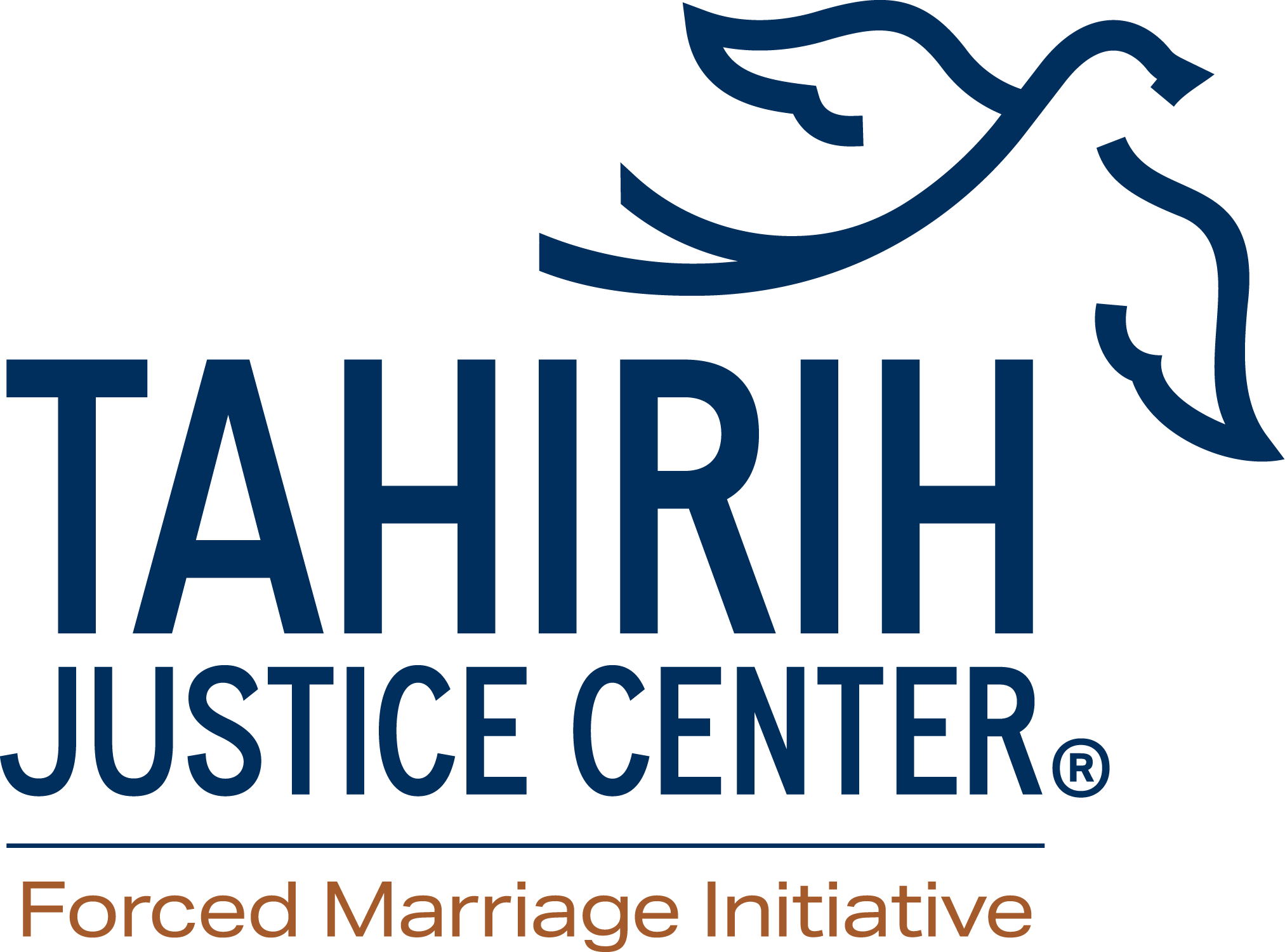Forced Marriage Overseas: Canada
Overview
Individuals from the United States can likely access a network of protections trying to avoid and/or escape forced marriage in Canada. With a strong government response to forced marriage and an established NGO community advocating for survivors, individuals at risk have resources and supports available, as well as strong protections under the law.
For further information and guidance for individuals from the U.S. that are facing or fleeing a forced marriage in Canada, please contact the Forced Marriage Initiative.
Marriage in Canada
Women and girls in Canada have equitable and protected rights when entering or ending a marriage. The Civil Marriage Act governs marriage and divorce in Canada and was recently amended by the Zero Tolerance for Barbaric Cultural Practices Act. The Act established age 16 as the national minimum age for marriage.1 It also amended the Criminal Code to make forced marriage crime punishable by up to 5 years in prison for those who celebrate, aid, or participate in a marriage rite or ceremony knowing that one of the persons is marrying against their will.2
Forced marriage is a documented problem in Canada. The South Asian Legal Clinic of Ontario released a report that documented 219 confirmed or suspected cases of forced marriage in Ontario and Quebec from 2010 to 2012. The majority of these cases involved female victims and a wide range of religious groups were represented: 103 were Muslim, 12 Christian, 44 Hindu, 24 were unsure of their religious affiliation, and 5 cases had no religious affiliation. Almost half were Canadian citizens and, in most cases, family members were the perpetrators.3
Each province (Alberta, British Columbia, Manitoba, New Brunswick, Newfoundland and Labrador, Nova Scotia, Ontario, Prince Edward Island, Quebec, and Saskatchewan) also has its own marriage act which outlines the legal mechanism for confirming the age of each person to be married as well as other regulations.
A valid marriage in Canada requires the “free and enlightened consent” of the two parties to be married and the individual marriage acts of each province and territory also contain measures to ascertain the voluntary consent of persons to be married.4
Under Canadian law, annulments are a legal option for both men and women to dissolve a marriage. Many provincial and territorial legislatures have codified rules regarding annulments in their marriage acts which vary location to location. If either party was under 16 at the time of the marriage that is grounds for annulment, however, for the most part, proving one of the other grounds is extremely difficult, which make annulments challenging to obtain and very rare.5
The federal government has exclusive jurisdiction over divorce which is legislated under the federal Divorce Act. While the grounds for divorce are within the jurisdiction of the federal government, the individual provinces and territories govern the process of divorce.6 Consent of both parties is required for a marriage to be considered valid, force, fraud, and coercion are not specific grounds for divorce in Canada.
Potential Risks and Protections in Country
All parts of Canada have police and Crown prosecutor and spousal abuse policies to ensure that spousal violence is treated as seriously as stranger violence. Six provinces (Alberta, Manitoba, Nova Scotia, Prince Edward Island, Newfoundland and Labrador. and Saskatchewan) and three territories (Northwest territories, Yukon and Nunavut) proclaim specific legislation on family violence.7
Besides seeking help from police, victims can also turn to either criminal courts or civil courts. Assistance includes the additional protection of a restraining or protective order against an abuser as well as a robust network of shelters and NGOs. Nevertheless, shelters continue to struggle to meet the needs of all individuals at risk and although a variety of shelters are available to abused women in Canada, on a snapshot date in 2014, 338 women and 201 accompanying children were turned away from the shelters with the most common reason being that the shelter was full.8
Special Challenges in Returning to the United States
Canada has no exit provisions in its immigration code. All adults and minors can leave Canada as they desire though individuals should always check the exit requirements for Canada for the most-up to-date travel information.
Assistance for Individuals from the United States
- The Tahirih Justice Center Forced Marriage Initiative
The Tahirih Justice Center is available to help individuals from the United States who are facing or fleeing forced marriage in Canada. Assistance includes providing phone, text and email support, connecting with the U.S. government as well as the Canadian government and local resources, and coordinating shelter and services in the United States. - The U.S. State Department
The State Department is available to assist U.S. citizens that are victims of forced marriage with replacement of travel documents and return travel to the United States. For updated information and travel alerts, please visit the department’s webpage on international travel in Canada. - U.S. Consulate General in Toronto
Contact the consulate in the case of an emergency.
Tel: 416-595-6506 or 416-201-4056 (after hours emergency line)
Email: TorontoPassport@state.gov
REFERENCES
1 Canada, Civil Marriage Act.
2 Rachel Browne, Canada Wants to Make Forced Marriage a Crime, VICE NEWS, (June 15, 2015) available at https://news.vice.com/article/canada-wants-to-make-forced-marriage-a-crime
3 SALCO, Who, If, When to Marry – The Incidence of Forced Marriage in Ontario, (Sep 2013) available at https://www.salc.on.ca/SALCO%20-%20Who,%20If,%20When%20to%20Marry%20%20-The%20Incidence%20of%20Forced%20Marriage%20in%20Ontario%20(Sep%202013).pdf
4 Canada, Civil Marriage Act.
5 Michelle Sample, Civil Annulments in Ontario, Goldhart & Associates, (June 7, 2016) available at https://goldhartlaw.com/civil-annulments-in-ontario/
6 Divorce in Canada: Provincial Laws available at https://divorce-canada.ca/divorce-in-canada-by-province
7 Department of Justice, Family violence laws available at www.justice.gc.ca/eng/cj-jp/fv-vf/laws-lois.html
8 Sara Beattie & Hope Hutchins, Shelters for abused women in Canada 2014, (2015) available at https://www.statcan.gc.ca/pub/85-002-x/2015001/article/14207-eng.htm



